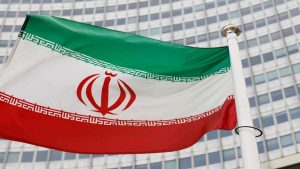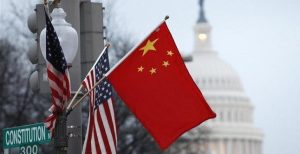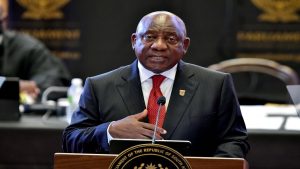“South Africa has noted with concern the escalation of United States aggression against Cuba and the region and the rolling back of the previous US administration’s policy engagement with Cuba.”
That was the message delivered by the country’s envoy to the United Nations during the annual two-day debate in the General Assembly on the Necessity of Ending the Economic, Commercial and Financial Embargo imposed by the United States on Cuba.
The annual resolution receives overwhelming support in the General Assembly and a similar result is expected when the Assembly votes on the resolution on Thursday.
An embargo – 6 decades in existence – and described in the General Assembly as an economic noose around Cuba’s neck. As country after country implored the United States to change its policy, that has affected Cuba’s Sustainable Development Goal aspirations and bilateral trade and investment between Pretoria and Havana, Ambassador Jerry Matjila explained:
“South Africa has noted with concern the escalation of US aggression against Cuba and the region, and the rolling back of the previous US Administration’s policy of engagement with Cuba. South Africa condemns the activation, as announced on 3 April 2019, of Title III of the 1996 Helms-Burton Act, which allows legal action through US courts for reparations following the nationalisation of properties in Cuba in 1959. The intensification of the extraterritorial application of the embargo through the activation of Title III of the Helms Burton Act is strongly rejected by South Africa as third countries are increasingly discouraged to pursue normal trade and investment opportunities with Cuba.”
In addition to the embargo the Trump administration has allowed US citizens to file lawsuits against Cuban and Foreign companies over property seized during the Cuban revolution, under legislation waived by previous presidents.
It has sanctioned nearly 200 Cuban military run companies and hotels, its banned trips by US cruise ships and recreational vessels to the country and recently suspended commercial flights to 9 Cuban destinations excluding Havana
Palestine’s envoy and the current Chair of the Group of 77 plus China, Riyad Mansour says, “The Group of 77 and China would like to express our deep concern about the prolonged negative effects that the economic sanctions and travel restrictions have had on Cuba and its people. From April 2018 to March this year, the impact of the US embargo on Cuba’s foreign trade amounts to more than 4 billion US dollars. Limited foreign investment and difficult access to development credits translate directly into economic hardship and humanitarian impacts for the people of Cuba. The country’s socio-economic reforms have also been hampered by the embargo.”
Grenada’s Ambassador Keisher McGuire for the Caribbean Community says, “We view Cuba as an integral part of our Caribbean civilization which threatens no-one. Caricom continues to support the sovereign right of Cuba to choose its own path in a manner it deems beneficial to its social and economic development. The embargo imposed against Cuba violates international law and is an anachronism, an aberration in the world of today.”
Russia accused the United States of threatening the whole system of international relations through what it called discriminatory practices.
Russia’s Deputy Foreign Minister Alexander Punkin says, “These acts undermine the pillars of global and regional stability and raises force as a diktat, as a norm of international relations, American style. The question lies in the following – who will become the next insubordinate party so to speak. For life amid sanctions today is a reality not merely for Cuba and not merely for Russia but essentially for the a third of countries worldwide.”
The Assembly is expected to hear from both Cuba and the United States Thursday when the GA is due to vote on the resolution.
Last year’s vote passed with 189 countries in support and two against but remains an unenforceable text as it requires a change in domestic US legislation.






